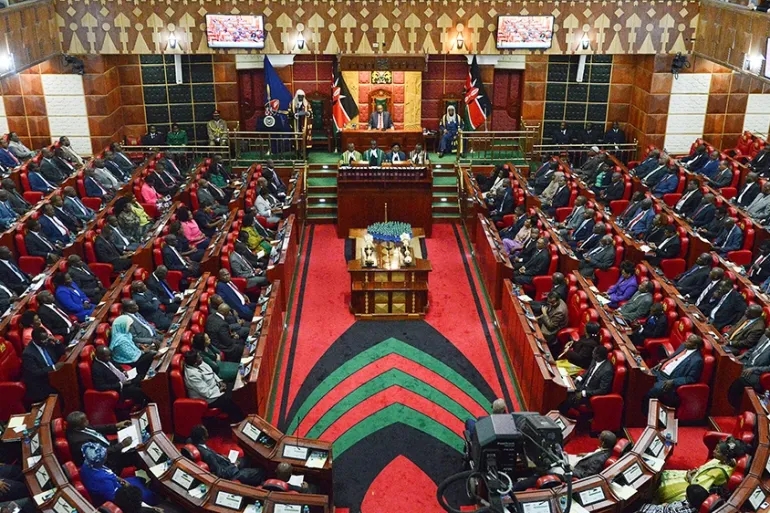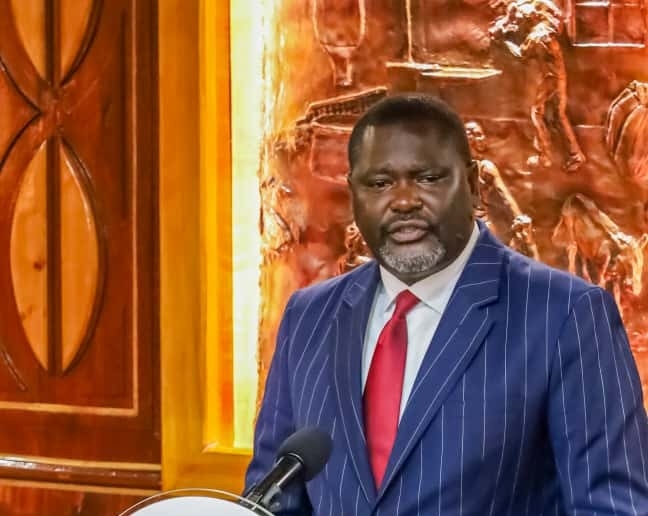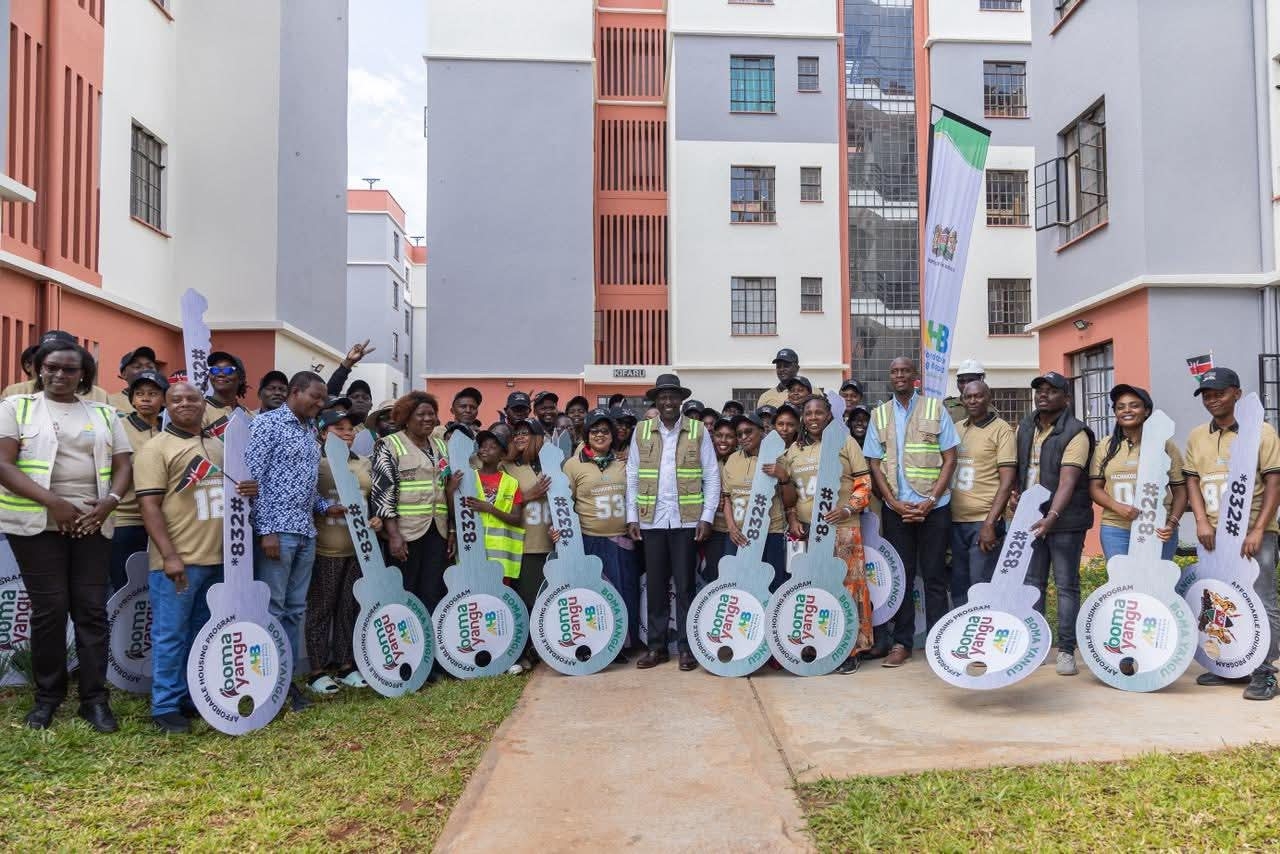Kenya is finalising requirements for the implementation of the National Automotive Policy, Investments, Trade and Industry CS Rebecca Miano has said.
This is in a fresh bid to leapfrog the local assembling industry and discourage importation of second-hand vehicles, even as it pushes for growth in the manufacture of electric vehicles.
The policy has been under formulation for the past three years, with several revisions and lobbying by dealers of new cars and second-hand imports, but is yet to be implemented amid protest by the latter.
“The policy will boost local content in vehicles manufacturing in Kenya and support our own carbon neutrality aspirations including green industrialisation,” CS Miano said.
This sets the ground for yet another battle with dealers of used units, who are concerned that it will push them out of business.
Approved by the Ministry of Industrialisation in 2022, the policy is aimed at scaling up local production of motor vehicles and parts, implement a total ban on importation of used fully built units of commercial vehicles and a phased-out plan on importation of used fully built passenger vehicles.
It also targets to control importation of vehicles with engine capacity exceeding 1500cc and cut the allowed age limit for used imported units to five from the current eight years, before moving to three years and finally zero.
This means Kenya has a long-term plan of completely stopping the importation of second-hand cars once the local industry meets the demand.
In 2020, the government banned importation of used buses and several types of trucks.
The country has three major assemblers–Associated Vehicle Assemblers (AVA) in Mombasa, Kenya Vehicle Manufacturers (KVM) in Thika and Isuzu East Africa in Nairobi, with an annual production of 40,000 commercial vehicles.
“Kenya seeks to create avenues that target the domestic and export markets. KVM, Basigo and CFAO together with like-minded businesses bolster Kenya's efforts to achieve self-sufficiency in priority sectors by promoting local manufacturing, jobs creation and fostering socio-economic development,” said Miano.
Isuzu East Africa, the leading dealer in new vehicles with up to 47 per cent of market share, agrees that while the local industry has the capacity to meet demand on heavy commercials, it falls short on small units.
The uptake of locally assembled heavy commercial vehicles, trucks, buses and other units also remains low despite availability.
“At the moment, we have the capacity to do up to 18,000 units but the market that is there is only taking 6,000 to 7,000. We are doing a lot of work to grow the market because the capacity is there,” Isuzu Sales and Marketing Director, Wanjohi Kangangi, said.
With a combined industry assembling capacity of 46,000 units, Kenya continues to import up to 85 per cent of its vehicle needs, mainly from Japan, UAE, UK, Thailand, Singapore and South Africa.
Local assemblers and dealers have been banking on KS1515:2019 standard by the Kenya National Bureau of Standards, part of the policy, to help tame the high imports and support growth of the local assemblies.
The standard meant to tighten inspection and allowable imports first unveiled in 2019 was however challenged in court, with a pending case to date.
Isuzu East Africa managing director Rita Kavashe notes that the industry has the potential to make Kenya a regional vehicle manufacturing hub, supplying Eastern and Central Africa.
“To become a regional and global automotive supplier, Kenya needs to fully implement the National Automotive Policy ,”Kavashe said.
The Car Importers Association of Kenya (CIAK) and the Kenya Auto Bazaar Association (KABA) however remain opposed on the ban on used cars.
Second-hand cars are cheaper, averaging between Sh800,000 and Sh1.5 million for the low capacity units, compared to new cars whose starting price is from about Sh2.5 million.
“Locally assembled cars are more expensive and beyond many Kenyan’s reach,” CIAK national chairman Peter Otieno told the Star in a telephone interview.
KABA on the other hand has lodged a complaint with the Competition Authority of Kenya, arguing that the sole aim of the policy is to protect new motor vehicle dealers and assemblers from competition.
“The local players can barely meet a quarter of the vehicle demand in the country,” KABA told the star yesterday.
During a recent visit to Japan, where Kenya and Toyota Tsusho Corporation signed an agreement to set up a vehicle manufacturing plant in the country, President William Ruto said Kenya will reclaim its place among Africa’s leading manufacturers such as South Africa and Morocco.
South Africa produces about 400,000 units annually and exports over 100,000, with the industry creating over 110,000 direct jobs and 350,000 indirectly.
Egypt produces over 80,000 vehicles and provides about 70,000 jobs even after being affected by the 2011 revolution, with plans to push production capacity to 500,000.
Morocco assembles over 250,000 vehicles and exports about 170,000 vehicles annually, with the industry creating over 160,000 jobs.
















